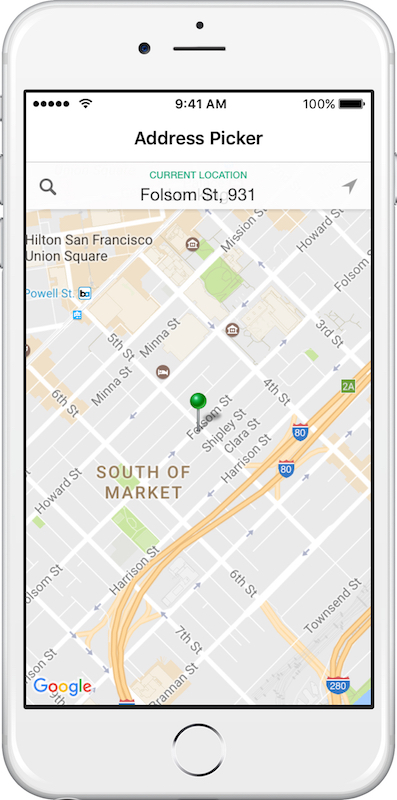Extending Groser iOS and Rails apps to support grocery delivery in multiple cities - Part 1
Initially we were trying to proof a concept and didn’t think it will work, now over 1 year after our first delivery we’re facing new opportunity. After getting multiple inquiries from eager entrepreneurs in large cities, we decided to franchise our model. That requires extending internal architecture to support multiple cities.
Current architecture supports grocery deliveries from one store in one city only. We have 1 iOS client app, 1 iOS Shopper app and Rails back end. All apps are working over REST API namespaced under API::V1, supporting multiple cities will require creating new and introducing breaking changes into old API.
Setting up Rails routes
Let’s start with copying API::V1 code in app/views/api/v1, app/controllers/api/v1, app/helpers/api/v1 into new v2 directory.
$ cp -R app/controllers/api/v1 app/controllers/api/v2
$ cp -R app/views/api/v1 app/views/api/v2
$ cp -R app/helpers/api/v1 app/helpers/api/v2Then I’ll update routes.rb and simply copy v1 namespace into v2.
namespace :v2 do
# client app
devise_scope :user do
post "/sign_up", :to => 'registrations#create'
post "/sign_in", :to => 'sessions#create'
post "/facebook", :to => 'registrations#facebook'
post "/vkontakte", :to => 'registrations#vkontakte'
delete "/sign_out", :to => 'sessions#destroy'
end
...I use excellent Sublime Text 2 and will use its project file folder_exclude_patterns setting to exclude V1 directories to avoid accedentally changing V1 of API.
{
"folders":
[
{
"folder_exclude_patterns":
[
"tmp", "*/v1"
],
"file_exclude_patterns":
[
".keep"
]
}
]
}After excluding old API from text editor, I’ll use global Replace command to change module V1 namespace to V2.

After that cleaned up deprecated code used to support old version of the iOS apps, when I didn’t think it merited upgrading API version.
Switch iOS app to API V2
I use AFNetworking with AFHTTPSessionManager descendant initialized with the base URL of an API. Just change v1 to v2 at the end of the URL.
#if !(TARGET_IPHONE_SIMULATOR)
NSString * const kBaseUrl = @"http://www.groser.ru/api/v2";
#else
NSString * const kBaseUrl = @"http://localhost:3000/api/v2";
#endifMulti city delivery data model
Before extending current architecture for multi city deliveries, I drew the diagram of the current architecture and added necessary models and associations.
 Left: Current Model, Right: Extension
Left: Current Model, Right: Extension
Delivery Zones
We’ll do limited roll out of delivery across city with by dividing city into geogrpahical zones. I’ll create new Zone model with geometry:json attribute to keep GeoJSON-encoded geometry of the delivery zone:
rails g model Zone city:references geometry:json --no-test-frameworkThen I need to create default delivery zone for the current city we work in, Moscow.
class AddDefaultMoscowDeliveryZone < ActiveRecord::Migration
def self.up
city = City.find_by_name('Москва')
Zone.create!(city: city, geometry: city.geometry)
end
def self.down
raise ActiveRecord::IrreversibleMigration
end
endDelivery windows
At the start we’ll support delivery from one chain of supermarkets in the city, so I’ll create many-to-one association between DeliveryOption used to track availability of delivery windows, and City. Later when we’ll support delivery from multiple supermarkets in the city, I’ll move that association to Store model.
rails g migration add_city_to_delivery_option city:referencesProduct variants
To enable variable prices for products in multiple cities, I need to extract Product attributes that will vary between cities. Attributes that will stay the same:
- title
- weight
- photos
- description
- barcode
Attributes that I need to extract are:
- unit_price
- store_price
- department_id
- shelf_id
- store_id
- often_out_of_stock
- unlisted
- frequently_found
- loss_leader
- out_of_stock
- out_of_stock_count
- found_count
- user_favorites_count
- order_items_count
I also need to keep barcode attribute in 2 places, cause bulk product barcode varies between stores. Let’s create ProductVariant model.
rails g model ProductVariant product:references store:references department:references shelf:references unit_price:float store_price:float editor_id:integer user_favorites_count:integer order_items_count:integer found_count:integer out_of_stock_count:integer flags:integer barcode:string --no-test-frameworkInstead of boolean fields I will use bitmask_attributes
class ProductVariant < ActiveRecord::Base
belongs_to :product
belongs_to :store
belongs_to :department
belongs_to :shelf
belongs_to :editor, class_name: 'User'
# Don't change the order of the values, remove any values, or
# insert any new values in the `:as` array anywhere except at the end
bitmask :flags, :as => [:unlisted, :out_of_stock, :often_out_of_stock, :frequently_found, :loss_leader]
validates_presence_of :product, :store, :department, :shelf, :store_price
default_scope { without_flags(:unlisted).includes(:product) }
endRight now we have only one Store with one set of products. To make it all work, let’s create ProductVariant for each Product currently in database.
rails g migration create_product_variants_from_current_productsclass CreateProductVariantsFromCurrentProducts < ActiveRecord::Migration
def self.up
default_store = Store.find_by_name('Ашан')
Product.where('store_id = ? and department_id IS NOT NULL and shelf_id IS NOT NULL', default_store.id).find_each do |product|
attributes = {
product: product,
store: default_store,
shelf_id: product.shelf_id,
department_id: product.department_id,
store_price: product.store_price,
user_favorites_count: product.user_favorites_count,
order_items_count: product.order_items_count,
found_count: product.found_count,
out_of_stock_count: product.out_of_stock_count,
}
attributes[:barcode] = product.barcode if product.bulk?
flags = []
flags << :frequently_found if product.frequently_found
flags << :loss_leader if product.loss_leader
flags << :often_out_of_stock if product.often_out_of_stock
flags << :out_of_stock if product.out_of_stock
flags << :unlisted if product.unlisted
attributes[:flags] = flags unless flags.empty?
ProductVariant.create!(attributes)
end
end
endReplace Product references in queries and associations with ProductVariant
First up is an aisle model which I mistakenly named Shelf
class Shelf < ActiveRecord::Base
has_many :product_variants, -> { order('products.name ASC') }, dependent: :destroy
has_many :popular, -> { order('product_variants.order_items_count DESC') }, class_name: 'ProductVariant'
...
endIt’s Department turn.
class Department < ActiveRecord::Base
has_many :product_variants
has_many :popular, -> { order('order_items_count DESC').limit(6) }, class_name: 'ProductVariant'
...
endNext up is ShelvesController.
class Api::V2::ShelvesController < Api::V2::ApiController
respond_to :json
def show
shelf = Shelf.find(params[:id])
products_json = Rails.cache.fetch("shelves/#{shelf.id}_#{shelf.updated_at}", {raw: true}) do
products = ProductVariant.where(shelf_id: params[:id]).order('products.name ASC')
products.to_json
end
render :json => products_json
end
...
endTime to move Product.as_json method to ProductVariant. I override Product.as_json method to avoid using partials, which do slow down serialization to JSON.
def as_json(options = {})
attrs = [:id, :shelf_id].concat(options[:only] || [])
options.delete :only
json = super({:only => attrs}.merge(options))
json[:name] = self.product.name
json[:unit] = self.product.unit
json[:unit_price] = self.product.unit_price
json[:unit_size] = self.product.unit_size
json[:container] = self.product.container
json[:brand] = self.product.brand if self.product.brand.present?
json[:image_small_url] = self.product.photo.small.url if self.product.photo?
json[:often_out_of_stock] = true if self.flags?(:often_out_of_stock)
json[:out_of_stock] = true if self.flags?(:out_of_stock)
json
endUpgrade UserFavorites to ProductVariant
Turns out there are many more dependencies on Product, I use UserFavorite to track which products user has liked which, now UserFavorite should reference ProductVariant instead of Product.
rails g migration upgrade_user_favorites_to_product_variantI’m iterating over each UserFavorite setting product_variant attribute to ProductVariant created in previous migration for the given UserFavorite.product
class UpgradeUserFavoritesToProductVariant < ActiveRecord::Migration
def self.up
add_column :user_favorites, :product_variant_id, :integer
add_index :user_favorites, :product_variant_id
ActiveRecord::Base.transaction do
UserFavorite.all.each do |favorite|
favorite.update(product_variant: ProductVariant.find_by_product(favorite.product))
end
remove_column :user_favorites, :product_id
end
end
def self.down
raise ActiveRecord::IrreversibleMigration
end
endUpdate User.favorite_products association to ProductVariant
class User < ActiveRecord::Base
has_many :favorite_products, class_name: 'ProductVariant', :through => :user_favorites, :source => :product_variant
def likes?(product_variant)
self.user_favorites.where(product_variant: product_variant).any?
end
def like(product_variant, likes)
if likes
UserFavorite.where(product_variant: product_variant, user: self).first_or_create
else
favorite = UserFavorite.where(product_variant: product_variant, user: self).first
favorite.destroy if favorite
end
product_variant.reload
end
endMove Product markup calculation to ProductVariant
We mark up product prices for customers to incentivize shoppers who pickup and deliver products.
class ProductVariant < ActiveRecord::Base
...
before_save :markup_unit_price
def marked_up_price(store_price)
if self.loss_leader
store_price
elsif store_price > 0
expensive_item = store_price >= EXPENSIVE_ITEM_THRESHOLD_PRICE
markup_percent = (self.product.is_alcoholic or expensive_item) ? ALCOHOLIC_AND_EXPENSIVE_ITEMS_MARKUP_PERCENT : MARKUP_PERCENT
# mark it up and round to 2 floating point digits
((store_price + store_price * (markup_percent / 100.0)) * 100).round / 100.0
end
end
...
private
def markup_unit_price
self.unit_price = marked_up_price(self.store_price)
true
end
endUpgrade OrderItem to ProductVariant
I fear this the most, cause 1 mistake in migration can break everything. I’ll keep original OrderItem.product_id attribute intact, and remove it when everything works again.
First, I’ll add OrderItem.product_variant reference and replace product_id, replacement_id and chosen_replacement_id with ProductVariant ids for given product’s id.
rails g migration add_order_item_product_variant_reference product_variant:referencesclass AddOrderItemProductVariantReference < ActiveRecord::Migration
def self.up
add_reference :order_items, :product_variant, index: true
replacements_count = 0
ActiveRecord::Base.transaction do
OrderItem.all.find_each do |item|
product_variant = ProductVariant.find_by_product_id(item.product_id)
update = {
product_variant: product_variant
}
if item.replacement_id and replacement_variant = ProductVariant.find_by_product_id(item.replacement_id)
update[:replacement] = replacement_variant
replacements_count += 1
end
if item.chosen_replacement_id and chosen_replacement_variant = ProductVariant.find_by_product_id(item.chosen_replacement_id)
update[:chosen_replacement] = chosen_replacement_variant
replacements_count += 1
end
item.update(update)
end
end
puts "Upgraded #{replacements_count} replacements"
end
def self.down
raise ActiveRecord::IrreversibleMigration
end
endChange replacement and chosen_replacement class name to ProductVariant.
class OrderItem < ActiveRecord::Base
...
belongs_to :product
belongs_to :product_variant, counter_cache: true
belongs_to :replacement, class_name: 'ProductVariant'
belongs_to :chosen_replacement, class_name: 'ProductVariant'
delegate :shelf, :to => :product_variant
delegate :department, :to => :product_variant
validates_presence_of :product_variant, :unless => :special_request?
...
endUpgrade possible product replacements
Oftentimes some products are sold out at the particular store, especially meat and produce in the evening, we give customer choice of possible replacements before placing an order. Let’s upgrade from ‘Product’ to ‘ProductVariant’ for replacements.
rails g migration add_product_variant_to_related_products product_variant:referencesclass AddProductVariantToRelatedProducts < ActiveRecord::Migration
def self.up
add_reference :related_products, :product_variant, index: true
remove_column :related_products, :product_id
RelatedProduct.delete_all
end
def self.down
raise ActiveRecord::IrreversibleMigration
end
endThere are hundred thousands of RelatedProduct records and it’s eastier to recreate them later than find ProductVariant for each Product that it used to reference.
Upgrade user’s preferred product quantity
We keep track of quantity user ordered before, so if he bought 3kg of apples, next time he wants to order same apples, he won’t have to select the weight.
rails g migration add_product_variant_to_product_preference product_variant:referencesclass AddProductVariantToProductPreference < ActiveRecord::Migration
def change
add_reference :product_preferences, :product_variant, index: true
ProductPreference.all.find_each do |pref|
pref.update(product_variant: ProductVariant.find_by_product_id(pref.product_id))
end
remove_column :product_preferences, :product_id
end
enddef preferred_qty(product_variant)
product_preferences.find_by(product_variant: product_variant).try(:qty)
endIn Part 2, I’ll upgrade search to use ProductVariant, upgrade order dispatcher to support multiple stores and route orders to city’s shoppers.


